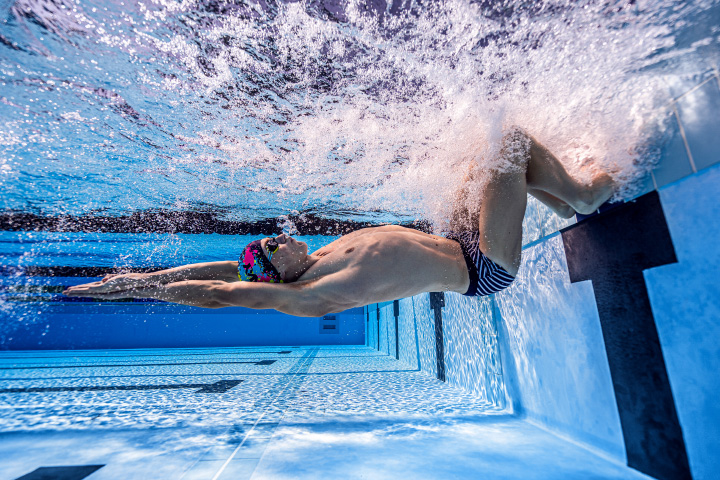Triton Score measures performance and gives you an overview of your Readiness, Focus and Intensity. The score offers a fast and easy way to understand how well you trained while also ensuring you maintain a balance between volume, effort and technique. The hardest part is knowing how to use your metrics and act on insights to swim faster.
At TritonWear, we developed Focused Iterative Training, FIT, to break this down into three easy and actionable steps: observe, discover, and adjust.
- Observe your Triton Score and learn what influences your score.
- Discover patterns in metrics you excel in and others you need to improve on.
- Use insights to adjust your training and master your progress.
Four weeks of tracking all workouts are necessary before setting goals on what metrics to improve on. You will need to learn how your Triton Score fluctuates and what impacts each of your Readiness, Focus and Intensity Scores before you start adjusting your training.
Mastering TritonWear Readiness, Focus & Intensity
Readiness
TritonWear Readiness gives you an insider look into how your body adapts to internal and external factors affecting your training. Readiness calculates load change over time and provides you with injury risk and training status (safe, overtraining, or undertraining).
The goal is for most of your practices to hit a 90 Readiness score and progressively increase your training load. Significant changes in volume (distance) put you at risk of over or undertraining. Aside from volume and intensity, your emotional state also impacts your Readiness Score. Negative emotions, school or work stress are all linked to poor overall performance. If Readiness is alerting you that you are at risk of overtraining, you’ll need to adjust your training to keep your body healthy. Consider incorporating active recovery workout days following intense training and avoid sudden increases in training volume.
Focus
TritonWear Focus gives you an overview of how efficient you are in the water. When you are trying to decide which technique works best for you, it is essential to understand that what works for one swimmer does not necessarily work for another. Tracking your metrics and understanding your swimming will help you answer this for yourself.
The goal is to hit a Focus Score of 80 or higher and aim for continuous iterations on your technical skills. When diving deeper into the individual metric scores, higher does not always mean better. For example, for a 50 Free, you may want a low Breath count. It is also crucial to understand that many metrics are correlated and cause fluctuations amongst them. For example, overwater and underwater metrics will always influence each other. The goal is to optimize metric trade-offs to maximize performance. Swimming faster is about having the best combination of metrics, not necessarily the highest scores in individual metrics.
A big part of an athlete’s performance is benchmarking results and always striving to improve. The Focus Comparison tools help you gauge your skill progression. First, you need to choose the stroke you aim to improve. Then dig deeper into the different swimming phases: transitions, overwater, and underwater and figure out which one impacts your overall speed? How does your skill execution rank against your baseline or other swimmers like you? Lastly, identify your weaknesses based on your Focus Comparisons, and decide how to adjust your training to meet your goals.
Intensity
TritonWear Intensity gives an overview of how hard you trained. It measures effort by creating a baseline of your usual distance, active time and swim intensity and adjusts it as you improve or train harder.
The goal is to hit an Intensity Score 75 or higher and safely increase distance, active time, or swimming intensity over time. The best practice when reviewing your scores is to understand how each score influences one another. Intense training (Intensity) can put you at a higher risk for injury (Readiness) and affect your ability to hold technique (Focus).
The TritonWear FIT philosophy recognizes that although training plans are carefully designed to predict swimmers’ adaptations, actual training does not always align with the plan. The FIT philosophy enables you to identify spikes and drops in your Triton Score and adjust your training to ensure you are doing the right work at the right amount and intensity.
Swim training is courtesy of Tritonwear, a SwimSwam partner.
